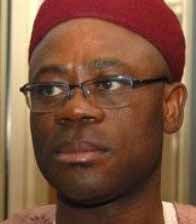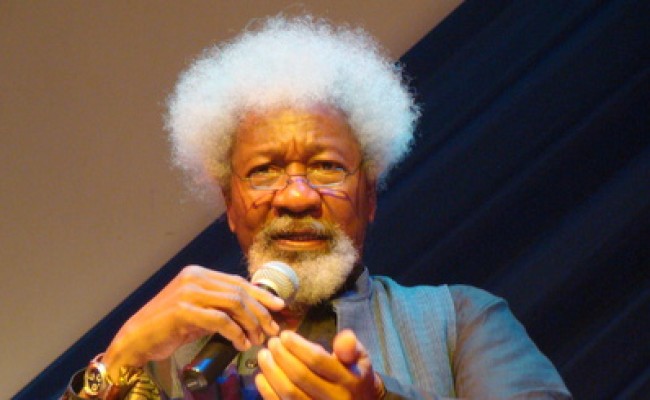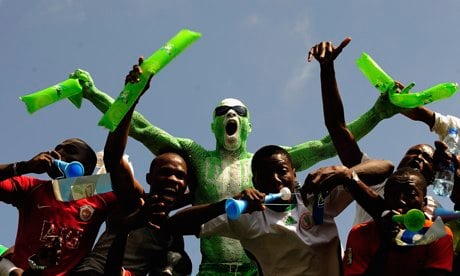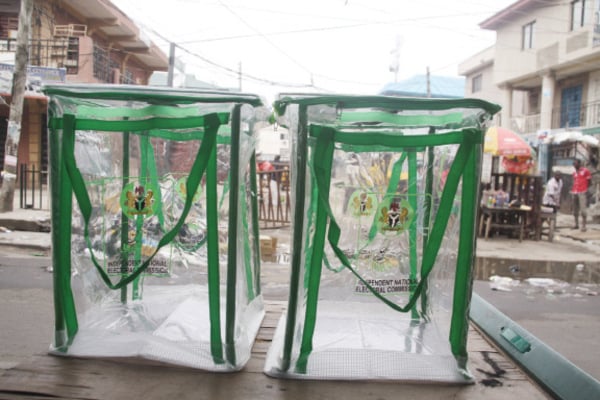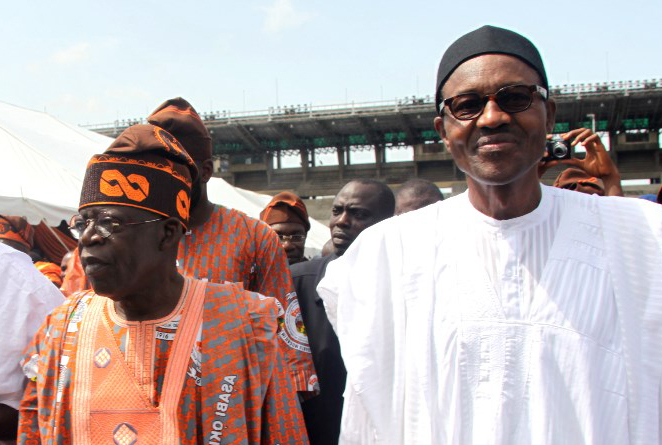The Nobel Prize might not make anyone the Asiwaju of African literature but that doesn’t mean we should mistake what the Nobel Prize stands for: the value of self-correction which Alfred Nobel was institutionalising. I am not sure it is proper to dismiss that value on the grounds of cultural nationalism and deny that, by winning the Nobel Prize and being the first Black African to do so, Wole Soyinka has not joined the Michael Jacksons, the Nelson Mandelas and the Barrack Obamas in breaking down History’s thick barricades against Africans. It is on this ground that no criteria of meaning-making should fail to take note of the event at Abeokuta last weekend where Nigeria was the subject of disquisition at the 80th birthday of the Nobel Laureate with the theme “This House Must Not Fall: Renegotiating Nigeria’s Social Contract After 100 Years of Nationhood”. Even those of us unenthusiastic about the liberal virus in the theme of Social Contract at a time when both the liberal and the radical world have moved on to the emancipatory virus, there are still many things brought together by the occasion that cannot be ignored.
The most obvious is the fact that Nigeria is still a non starter in this business of ‘Africa Rising’. Yet, Nigeria is ‘the largest concentration of blacks under any one government in human history’. Two, Nigeria is Soyinka’s country of origin and, by implication, the country by whose profile Soyinka’s use of the Nobel stature for emancipatory politics ought to be measured. Tragically, Nigeria is in ruins. Someone might argue that it means Soyinka didn’t put his Nobel stature at the service of building Nigeria creatively enough. I won’t dismiss such a position although I am not sure immediately now how far I would go with it. According to Mallam Aminu Kano, Nigeria can tire anybody. It could, therefore, also be that Soyinka can be discharged and acquitted of the charges of Eurocentricism in his writings and sectionalism in his politics because the same Soyinka, along with the late Chinua Achebe was a member of the People’s Redemption Party, (PRP) in the Second Republic. Professor Eskor Toyo, a man competent by experience and sacrifice to comment on this matter declared then that the PRP was the party for nationalists. In other words, Nigeria might just be less a case of what a Nobel laureate did or failed to do and more of a classic of where All the King’s horses and all the King’s men are having serious problems putting Humpty Dumpty together after tumbling severally in a great fall.
To take just one example of such tumbling, we have had the worst massacre, bestiality, cruelty and all those things that advertise us as an unserious collective for 33 uninterrupted years, i.e. since 1981. We call these ethno-religious conflicts although, in virtually all cases, they are elite struggle for control of oil money. Naturally, this reality must have taken a toll on the psyche of the entity called Nigeria. After all, it has been such a prolonged war and, in war, stuff happen. Nigerians have seen stuff these years – things horrible and things terrible – death, destruction, misery and dehumanisation. In other words, the crisis and the attendant manifestations in violent conflicts has not only been prolonged but also very, very painful, producing a collective psychology antithetical to the flourishing of Nigeria itself.
Apart from all sorts of predictions of Nigeria’s implosion in 2015, there are very little signs that we are about to get it right, even if we were we to succeed in begging, cajoling, boxing, defeating and kicking out Jonathan. This is without prejudice to the fact that there is a uniquely Jonathan dimension of the Nigerian crisis. What I am saying, however, is that there is such a huge deposit of agony, bitterness and absolute loss of faith observable in the citizenry that it amounts to taking deceit too far to still assume that Nigeria can get it right through the next elections, even if it meets the international standards that Attahiru Jega, the umpire is promising. That’s one.
Advertisement
Two, even if elections in 2015 would produce any solutions at all, does it mean Nigeria can afford the current level of killings going on throughout the country till 2015? As things are now, there is nothing to suggest the killings would stop before 2015. The Sultan of Sokoto, Saad Abubakar III, said recently that power seeking is behind the current insecurity. Saad Abubakar III is not only the Sultan, his pedigree is in the security sector and he must know what he is talking about. If this is the case, does it not behove of us to think of alternative ways of approaching 2015 rather than a victory – defeat dualism? Who will win and who will be defeated?
Three, the idea of re-negotiating the Social Contract that was privileged at Soyinka’s birthday was sufficiently tempting but not only is the discourse of the Social Contract out dated, the dialectics of citizenship in much of Africa has negated it. Fascism has been used on the citizenry by authoritarian regimes that the citizens who should demand and sustain the Social Contract are also its greatest enemy, much of it against their ‘objective’ interests. Even if Social Contract were still worth exhausting ourselves ideologically on, the elite mobilization facilities of huge internet mailing lists, newspaper and television screen populism that we use cannot sustain it. We lack the rooted political machine that can rouse the masses across popular democratic aspirations and keep them there in such a way that a Jonathan in Nigeria would never contemplate what the Academic Staff Union of Universities (ASUU) have courageously called ‘envelope budgeting’. They present the budget, the National Assembly passes it, the president signs it with fanfare and that is the end of story. The real budget is what the IMF’s Policy Support Instrument, (PSI) says. Yet, the Social Contract and the PSI are totally contradictory and, apart from ASUU, the PSI is not an issue in Nigerian protest politics, not even within the hypersensitive NGO community which is fond of dancing itself lame before the real dance comes when we talk of democracy.
Stuck in such a sickening and demeaning democracy but lacking a coalition of broad democratic flank cutting across the ethnic, religious and regional fault lines articulating, demanding and asserting itself against an elite that is fragmented but still national in its organisation of state power, we are effectively back at the ground zero of the Nigerian project. We are today a nation in which no body is in control although we are told by the government that they are on top of the situation. The evidence clearly shows that it is the situation that is on top of them rather and they could lose control in a way that millions could perish in few hours in a scenario that cannot be captured better than the way Isa Yuguda, Bauchi State governor did at the Lagos Island Club in February 2012.
Advertisement
He said: “A free-for-all internecine conflict in Nigeria will take on the character of several different battles-an inter-regional, intra-regional religious war between Muslims and Christians; an ethnic war fuelled by pent-up tribal grievances within a single state or across the boundaries of neighbouring states; an indigene-settler, farmer-nomad war of attrition and an all-out war between the haves and the have-nots across the length and breadth of the country. It will be a war without a warfront, because the whole country will be the theatre of battle and every inhabitant a reluctant warrior. And it will be a general war with an unprecedented number of casualties that, in addition, will cause large-scale suffering in which several millions of internally-displaced persons will be rendered homeless and many more refugees will be forced across Nigeria’s borders into neighbouring countries.”
This is the basis for sympathising with a Soyinka. For it will require a miracle for him to witness the realisation of the corrective possibility embedded in the Nobel Prize in Literature and which Nigeria should have been the most beautiful showcase for Africa to follow. The criminality of optimism in this context must be self-evident to all.
But that is one side of the story. Literature in which Soyinka won the Nobel Prize is about life and life is about the temptations of impossibilism. The criminality of optimism might be self-evident because the basis for optimism is not there. But even at the Soyinka 80th birthday anniversary, there was a flicker worth noticing. And that is General Yakubu Gowon’s presence at the occasion. That is not because he has reconciled with Wole Soyinka whom he put behind the bars during the Nigerian civil war. Their reconciliation is no longer news. Professor Ali Mazrui has told the story over and over. What was a flicker there is the workability, the productiveness of reconciliation and the signal flashed to Nigeria from that little corner.
Nigeria’s historic incompetence in nation building explains why Gowon’s presence but not what he said there should interest us all. Gowon jailed Soyinka as a state duty, under conditions of emergency as well as a military regime. He could argue that there is no basis for reconciliation between him and Soyinka. But he didn’t say or do so. When Ali Mazrui invited both of them to a conference, thereby providing an opportunity to smoother things over, Gowon recognized that such is the way of the world and he went. Soyinka too, in spite of perpetual intellectual warfare with Mazrui went to New York. The outcome is that a Gowon was at Abeokuta live addressing Nigeria on how to respond to the on-going war from the 80th birthday of the guy he put out of circulation in the course of prosecuting a previous war. Isn’t there something beautiful in all these?
Advertisement
If there is anything beautiful in all these, shouldn’t we seek to reproduce it in any ways on a national scale as a critique of a ‘fight to finish’ syndrome? Will it not be so healing, more productive and cheaper than any of the dead ends being touted by self-enlightened characters as ways forward, particularly going into the 2015 elections under the present conditions which is most unlikely to change drastically soon. Nigeria does not need the victory or the defeat of any party, person or region in the 2015 election. What it needs is the victory of the country and which victory can be gained only through reconciliation now rather than continuing to bleed ourselves to death with great prospects of slipping into permanent agony.
Nigeria would be exploring a rich heritage in taking this step. It is almost trite to but we must still start with mentioning Dr Alex Ekwueme’s emergence as a Vice-President less than a decade after the Biafran War. Some scholars have described as hollow Gowon’s ‘No victor, no vanquished’ but that pronouncement and Ekwueme’s position are very powerful confirmation of Ali Mazrui’s thesis that forgiveness and reconciliation is African. Earlier this year, Chief Olusegun Obasanjo whom, as everyone knows, wronged Chibuike Rotimi Amaechi in 2007 went to reconcile with the man who is now a governor. IBB and those who plotted a coup against him did so earlier in 2009. Atiku Abubakar whose warfare with Obasanjo had such a destabilising impact on the country is back with the same Obasanjo.It is probably in the nature of things that even in the midst of the bloodshed and bitterness that dominate Nigerian politics, such acts of reconciliation took place and we might be making a mistake not to attach meanings to them and draw lessons accordingly. After all, what is that great value that we stand to teach the world by insisting on electoral warfare in 2015 when we can beautifully pact power in a way in which would bring relief and benefits to everyone?
While the deadly warriors seeking to be president, governors, senators, ministers and what have you are doing their thing, is it not possible to contemplate the Nigerian crisis from the entry point of a Soyinka symbolism entailing a reconciliation initiative as a critique of 2015 in which neither victory nor defeat of any of the parties to the Nigerian crisis would be good enough for anyone or for Nigeria, if the signs on the ground are anything to go by. The sign is simply this: if there has been bloodletting for four years and even much earlier than that, not only as it relates to Boko Haram, and nobody could stop it, what is the guarantee that it would stop after 2015? And supposing some different kinds of resistance develops as the situation unravels, wouldn’t Nigeria have lost it?
Wisdom, said, Chinua Achebe, is like a goatskin bag. Everyone carries his. My wisdom sees a great ‘process Utopia’ in a coming together of the Wole Soyinkas, the Saad Abubakars, Archbishop Onaiyekans, the Sanusi Lamido Sanusis, the Emeka Anyaokwus, Hajiya Najatu Mohammeds, the Mathew Hassan Kukas, the Ledum Mittees, (could somebody help me add more names please), taking note from the onset that we are not looking for angels but just a certain category of human beings whose trajectory or position in life imposes the duty of enlightened conscience on them and who are, therefore, in a position to, collectively, carry out an injury time intervention for Nigeria by waging a moral, cultural and psychological warfare against evil and defeat it. And revitalise Nigeria.
Advertisement
*Onoja is at the Politics Dept, University of Warwick in UK
Advertisement
Views expressed by contributors are strictly personal and not of TheCable.
Add a comment
